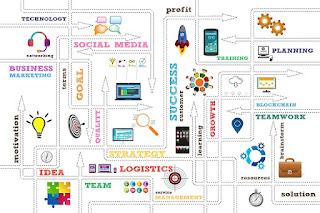Converting HTML to WordPress
The street from destinations worked with unadulterated HTML to WordPress was not a short one. From an all-text experience, website architecture has continued on to an exceptionally intuitive web presence. Moreover, we at this point don't need to compose markup ourselves, however, we can let content administration frameworks do the truly difficult work.
Nonetheless, that doesn't imply that static HTML sites don't exist any longer. Indeed, HTML5, the most recent cycle of the markup language, is extremely incredible and permits you to fabricate quality sites without a CMS behind them.
However, the developing portion of the overall industry of WordPress shows that an ever-increasing
the number of individuals is changing to the stage.
For some of them, it implies moving from static HTML to WordPress. This can be an overwhelming errand, however, this post will endeavor to disclose how to do it in a couple of basic ways.
Underneath, we will tell you multiple ways the best way to change over from HTML to WordPress. To begin with, you will realize what the various choices are just as their upsides and downsides. From that point onward, we will tell you the best way to execute every one of them bit by bit.
The 3 Ways to Move from Static HTML to WordPress
To move from HTML to WordPress, you really want to transform your HTML To WordPress Conversion Service. A topic controls the look and the sensation of a WordPress site, while the user is given by the actual CMS just as extra modules.
To do the switch, you have a few choices. Which one is ideally appropriate for you relies upon factors like the time and cash you are capable and able to contribute, your coding abilities, and individual inclinations? Coming up next are the fundamental choices.
A) Manually Convert HTML to a WordPress Theme
The primary choice is additionally the most specialized. Assuming you go above and beyond, will take your current code and use it as a beginning stage to make the WordPress subject records.
It's not very confusing, particularly assuming you have coding experience. You can pull it off with a touch of HTML, CSS, and some PHP information. A ton of it is reordered.
The drawback: while you will wind up with a functioning WordPress subject, it will not have each of the capacities WordPress brings to the table. For instance, except if you fabricate it afterward, your site will be without gadget regions or the capacity to change your menu from the WordPress backend.
While your site will go about its business, you will not have the option to oversee it totally through WordPress. Therefore, we by and by incline toward the following choice.




Comments
Post a Comment